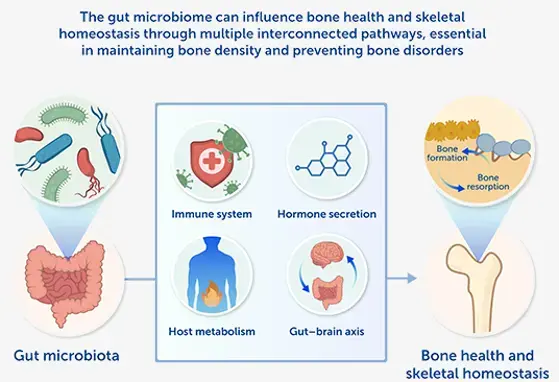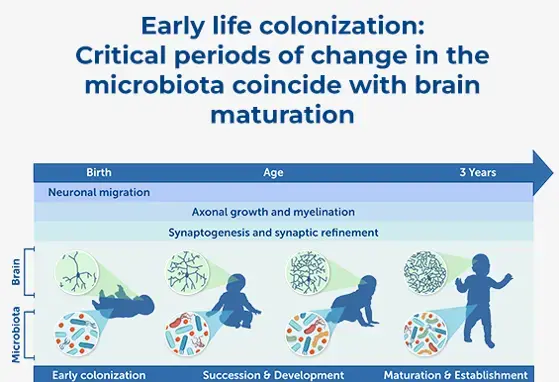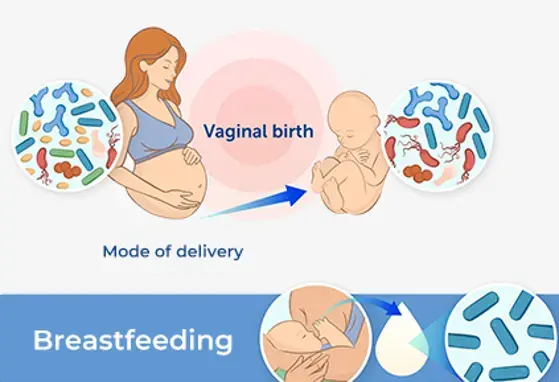How babies born by caesarean-section could be treated with maternal fecal microbiota transplants
A proof-of-concept study, published in October 2020 by Katri Korpela et al. in Finland, shows that transplanting fecal microbiota from the mother can help to quickly correct microbial development in babies born by caesarean section (CS).
Vertical transfer of gut bacteria from a mother to her newborn baby is a key feature of vaginal birth, which shapes the development of the child’s intestinal microbiota. This process of bacterial transfer is disrupted when a baby is delivered by caesarean section, and differences have been observed in the intestinal microbiota of CS-delivered babies, compared to those born vaginally.
Although the health implications of these microbial imbalances are not fully understood, animal studies indicate that gut microbiota may influence epigenetic programming, immune system development, growth and energy metabolism. With caesarean birthrates increasing globally, this could have long-term health implications for CS-born infants.
The Finnish study carried out maternal fecal microbiota transplantation (FMT), administered orally to seven CS-delivered newborns in their first human milk feed. Fecal samples from these seven babies were compared to samples from a further 82 vaginally born and CS-born babies, all were fully breast-fed and similar in average birth weight, weight at 3 months, or weight gain in 3 months.
Analysis of the newborns’ fecal samples found that, during their first few days of life, the microbiota development of FMT-treated babies differed from that of babies born vaginally. From seven days onwards, however, FMT-treated babies had a microbiota similar to vaginally delivered babies, and different from untreated CS-delivered babies.
Both Bacteroide and bifidobacterial species were found to be present in the microbiota of vaginally delivered and FMT-treated CS-born babies, but were lacking in the microbiota of untreated CS-born babies.
The results were also compared to microbiota data from previous experimental studies, where CS-born babies were treated with vaginal swabs in an effort to replicate maternal bacterial transfer. These studies showed that vaginal swabbing did not help to restore the microbiota of CS-born infants, but maternal FMT treatment did.
These promising findings indicate that maternal FMT could provide the first safe and effective method for restoring microbiota balance in babies delivered by caesarean.
Reference: Korpela et al. Maternal Fecal Microbiota Transplantation in Cesarean-Born Infants Rapidly Restores Normal Microbial Development: A Proof-of-Concept Study. Cell 183. 2020; 324-334.
If you liked this post you may also like

Disorder of Gut-Brain Interaction: Insights, Causes and Management


Microbiome and Brain Development: A Tale of Two Systems

An Overview of Early-Life Gut Microbiota Modulation Strategies